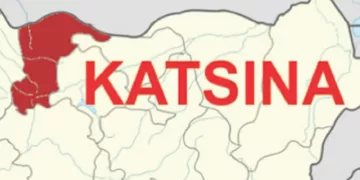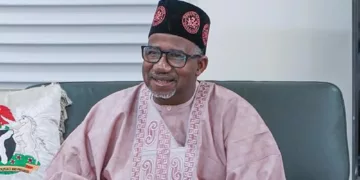Stakeholders have called on African youths to embrace the digital revolution and adopt new digital systems to help address leadership challenges across the continent.
This call was made during the African Week programme, which was organised by the United Nations Educational, Scientific and Cultural Organisation (UNESCO) in Abuja.
Speaking at the event, Professor Edmund Ugwu Agbo, Dean of the Faculty of Law, Telematic University, Canton Zug, Switzerland, highlighted the significance of Africa Day, celebrated annually on May 25 in commemoration of the founding of the Organisation of African Unity (OAU) in Addis Ababa in 1963.
He stressed that the world has gone digital and that information spreads globally, regardless of barriers.
“In the past, people could not afford to access CNN or BBC. But today, anyone can speak from anywhere and be heard by millions. This is a historic opportunity for Africans,” he said.
Agbo urged African nations to seize the moment of the Fourth Industrial Revolution, noting that it offers a platform for the continent to contribute actively to global progress.
He said UNESCO representatives across Africa realised that one day is not enough to celebrate the continent, “the oldest continent with the youngest population.” Hence, the African Week was conceived as a week-long celebration.
“This is a forum for dialogue, collaboration, cooperation, reflection, and evaluation of Africa’s past and present, with the goal of projecting a better future,” he stated.
The forum participants included representatives from academia, industry, government, civil society, and traditional rulers. Agbo described it as a rare opportunity to network, discuss partnerships, pursue business and academic opportunities, and develop interpersonal relationships.
This year’s theme, “Restitution of African Cultural Heritage—Educational, Social, Political Dimensions,” aligns with the African Union’s belief that cultural restitution must include active African participation.
Agbo lamented that the historical injustices against Africa, ranging from slavery to colonialism, have left deep psychological, social, and economic scars on the continent.
“Africans were not only the artisans of their own societies, they were taken, body and soul, to serve as slaves in the farmlands of the West, where they were slaughtered like animals. The development of the Western world was built on the backs of our people,” he said.
He criticised African leaders for perpetuating weak governance systems, which he said enable foreign interference.
“Too many African leaders are not qualified to lead. They are selected because they are weak and easily manipulated by foreign powers. When they disobey orders, they are removed,” he said.
He described democracy as a “vacuum concept,” arguing that Africa must redefine governance in line with its own indigenous values.
He reiterated that colonisation, following the slave trade, brought forced occupation, exploitation, cultural erasure, and economic ruin.
“African territories were divided, occupied, and looted. What we now see as inequality between Africa and the West is a direct consequence of those years of pillage,” he emphasised.
On his part, Labour Party LP National Caretaker Prof. Theophilus Ndubuaku noted that the colonial era imposed forced labour, taxation, land dispossession, and cultural suppression, which resulted in structural and racial injustices still faced by black African nations today.
“The so-called backwardness and poverty in Africa can be traced directly to these historical injustices,” he added.
Ndubuaku further demands compensation for reparations from the Western countries in various forms—moral, economic, and political—for the dehumanisation and exploitation Africans suffered.
“If we are to be treated as human beings, we must be recognised and respected as such. That is the essence of the reparations discourse,” he said.
He traced the historical movement for reparations from the 18th-century abolitionist campaigns to the Pan-African Congresses of the early 20th century, which laid the groundwork for African independence.
He cited the 2001 United Nations World Conference Against Racism in Durban, which recognised slavery, the slave trade, and colonialism as crimes against humanity and affirmed the right of Africans to seek reparative justice and the restitution of stolen cultural heritage.
“We want Africa to stand on its feet and operate effectively and efficiently, cooperating with other continents from a position of strength, not subjugation,” he said.
He concluded that the fight for justice continues across regional and global platforms, as African voices grow stronger demanding compensation and recognition for the historical injustices that have shaped the continent’s fate.





